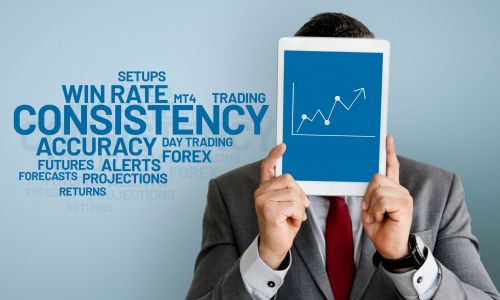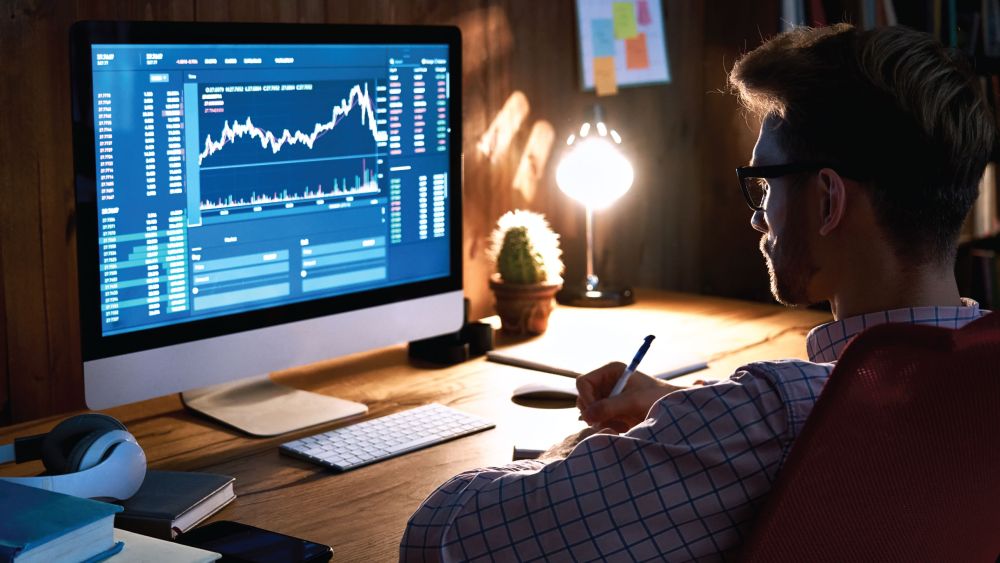Trading rules? No one can deny the impact of algorithms, trading robots, robo-advisors, indexing, ETFs, and the countless other ways we’ve attempted to take the emotion out of investing and just let the machines handle it. And yet Mad Money with Jim Cramer is still, maddeningly, on air. Worried-looking reporters fill the screen on Bloomberg 24 hours a day. Finance Twitter is always a bombastic brouhaha. Near-monthly crypto bubbles still give everyone a terminal case of FOMO.
…it’s kind of a lot to process, isn’t it? Not only that, but the time and energy spent processing emotions and digging through noise is time that would be better spent on due diligence. Or, you know, sleeping. So, since we’re all being constantly bombarded by emotional triggers, how can we learn to turn off that emotion, or better yet, use it to make better trading decisions?
Trading rules
The first thing to learn: stop learning
Sometimes, at least. Overwhelming yourself with new information, even good information, leaves you without time to process. The world is big and complicated. You really don’t need to know everything to make a decision. Often, you just need to take a breather before buying or selling. While many people still associate trading with pit traders’ frantic hand-waving, today, the idea of a human rushing into a trade against high-frequency trading algorithms is laughable. Stepping back gives you time to cool off and realize if you were just excited, overly optimistic, scared, bored, or one of the countless other emotions that leads to a trade.
You can only take what the market gives you
“There are decades where nothing happens, and there are weeks where decades happen.” – Vladimir Lenin. Take it from a guy who wasn’t even a capitalist: sometimes, it’s just not the time to trade. There’s nothing you can do to produce a strategic trade setup out of nothing. Naturally, no one has an interest in telling you this: the markets always want more trade volume. So, developing the patience to wait for a real opportunity is critical, but also something no course, guru, book, or blog (sorry) can teach you. You’ll have to develop patience the old fashioned way: practice.
Do more by trading less
Think like a professional day trader, not an amateur. Set some good trading rules. Set a trade window every day when you’ll actually make trades. For most, 1–2 hours in the morning can be plenty. Not only does it stop you from frantically looking for the next opportunity and hovering over the “buy” button, it focuses you. When you’re not in your trade window, you’re not trading. That’s your time to do research, read corporate reports and check the latest meme stocks. (Just kidding. Leave the memes to the kids.) When your next trading window comes around, you’ll have had time to process where the market is. Instead of only reacting, you’re being proactive.
Overtrading is always a challenge. But a strategy can help you overcome it. fractalerts are proprietary trade signals that can help you spot opportunities in 34 markets from equities to forex to bonds and beyond. They’re simple, elegant and based on rigorous quantitative data – and they’re used by banks, professional traders and investment firms to trade over $1 billion in assets. If you’re interested in learning more, start by telling us about what you trade on our Get Started page.
-

The rhytm beneath the noise
-

You Don’t Need a Trading Style. You Need an Edge.
-

Consistency Isn’t the Goal—It’s the Outcome
-

What 2 Quadrillion Data Points Told Us
-

Math and Physics-Based Trading in Any Market Condition
-

Do not worry about anomalies
-

Consistency should not be the goal. Consistency should be the result.
-

Stop canceling fridays
-

The Elliott Wave Forecast is Subjective, Bias Driven And Backwards looking
-

Finding patterns in market data

